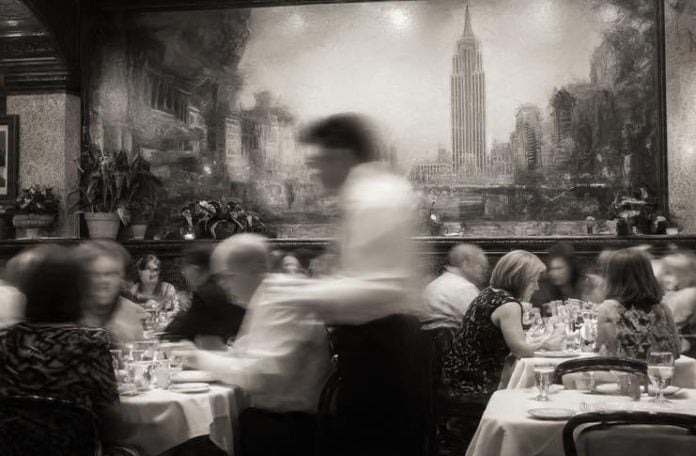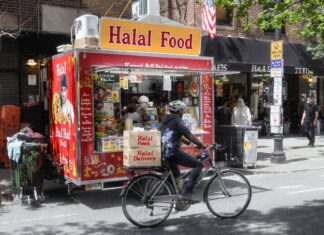New York City is renowned for its vibrant dining scene, boasting everything from Michelin-starred restaurants to neighborhood bistros. In such a competitive market, maintaining professionalism in every aspect of a restaurant’s operation isn’t just a matter of pride; it’s essential for success. Professionalism encompasses everything from staff conduct and customer service to kitchen operations, presentation, and business management. For restaurateurs in the city that never sleeps, upholding these standards can differentiate a successful establishment from one that struggles to survive. So, as part of our food and drink tips, in this post, we’ll explore how NYC restaurants maintain their professionalism.
Staff Presentation and Attire
The first impression of any restaurant often begins with its staff. A professional appearance communicates competence, hygiene, and attention to detail. Managers and servers should be dressed in clean, well-fitted uniforms, while kitchen staff should wear attire that’s both functional and professional. Restaurants that invest in high-quality uniforms demonstrate a commitment to professionalism and create an environment of respect and accountability. In particular, providing shirts made for chefs and kitchen staff can enhance the overall professionalism of the kitchen. These garments are designed to withstand the demands of a busy kitchen while ensuring chefs look polished and uniform, fostering team cohesion and confidence in front of customers.
My Experience
I once dined at Le Bernardin, where the front-of-house staff were impeccably uniformed, moving with a silent, synchronized grace that added to the whole atmosphere. Conversely, I walked out of a tiny Lower East Side spot when the host, wearing a stained t-shirt, looked completely disinterested in giving me a table. Presentation isn’t just about clothes; it’s about setting a mood of competence from the moment a diner walks in the door.
Watch this video to get a glimpse of Le Bernardin in NYC:
Customer Service Excellence
Professionalism extends beyond appearance; it’s also about behavior. In a city like New York, where diners expect exceptional service, staff must be trained to interact respectfully and efficiently with customers. This includes greeting guests promptly, taking orders attentively, and handling complaints gracefully. Consistency is key, every interaction should reflect the restaurant’s standards. Investing in regular training sessions for both front-of-house and back-of-house staff ensures that professionalism is maintained even during peak hours, when the restaurant is busiest.
Furthermore, responsiveness is a critical component of professional customer service. This includes addressing inquiries promptly, whether they come via phone, email, or social media, and being proactive in resolving issues before they escalate. A restaurant that consistently demonstrates attentive and courteous service will earn repeat customers and positive reviews, which are crucial in a competitive market like New York.
My Experience
I had a reservation snafu at Gramercy Tavern once, but the host immediately recovered the situation by offering us a complimentary drink at the bar while sorting out a better table. That level of effortless grace and quick problem-solving, without fuss or defensiveness, is the gold standard of professional service in Manhattan. It turned a potential complaint into a story of great customer care.
Watch this video to get a glimpse of Gramercy Tavern:
Cleanliness and Organization
A professional restaurant maintains impeccable cleanliness and organization at all times. This encompasses not only the dining area, but also the kitchen, storage spaces, and restrooms. Hygiene is a critical component of professionalism and has direct implications for customer safety and satisfaction. In the kitchen, maintaining a clean workspace reduces the risk of foodborne illness and ensures that operations run smoothly. Organization in inventory management, prep stations, and storage areas allows staff to work efficiently and minimizes errors, which reflects positively on the restaurant as a whole.
My Experience
Stepping into the basement restroom at a popular pizzeria in Carroll Gardens, Brooklyn, I was genuinely impressed by its pristine condition, despite the restaurant being absolutely rammed upstairs. That attention to detail in a non-public space told me immediately that they took hygiene and standards seriously everywhere, including their kitchen. That confidence makes me a repeat customer.
Watch this video to get a glimpse of Carroll Gardens:
Effective Management and Leadership
Professionalism at the managerial level sets the tone for the entire restaurant. Strong leadership involves clear communication, delegation of responsibilities, and fair treatment of staff. Managers must enforce standards consistently, recognize achievements, and address issues promptly. In addition, professional management involves strategic planning for staffing, supply chain, and financial operations, ensuring that the restaurant remains sustainable and capable of delivering a high-quality experience.
Leadership also plays a role in fostering a professional culture. When employees observe managers demonstrating integrity, punctuality, and respect, they’re more likely to emulate those behaviors. A culture of professionalism encourages accountability and motivates staff to maintain high standards across all aspects of the business.
My Experience
At Union Square Cafe, you rarely see a manager standing idle; they are always actively supporting the floor staff, clearing plates, or greeting regulars. This hands-on, supportive leadership style translates into a staff that seems genuinely happy to be there, creating a relaxed yet highly professional atmosphere for the guests. A good manager is often the unheralded reason a New York restaurant thrives for decades.
Watch this video to get a glimpse of Union Square Cafe:
Marketing and Public Relations
Maintaining professionalism extends beyond the walls of the restaurant and into how the business presents itself publicly. From a polished website and engaging social media presence to professional photography and consistent branding, every touchpoint reflects the restaurant’s identity. Public relations strategies should focus on transparency, responsiveness, and positivity. Handling media inquiries, reviews, and online feedback professionally can protect and enhance the restaurant’s reputation, which is particularly vital in New York’s highly competitive dining scene.
My Experience
I’ve seen fantastic public relations from The Modern at MoMA, which handles online feedback with thoughtful, personalized responses rather than generic corporate replies. Their social media showcases the art of their food without excessive hype, projecting a high-end, artistic professionalism that matches the museum setting. It demonstrates that their commitment to quality is translated flawlessly across every online platform.
Menu Presentation and Culinary Standards
Even the food itself contributes to the perception of professionalism. Menus should be thoughtfully designed, accurate, and easy to read. Dish descriptions should be clear, avoiding ambiguity, and prices should reflect the value offered. In the kitchen, maintaining consistent quality, portion control, and presentation ensures that every customer receives the same exceptional experience. Professional chefs understand that the visual appeal, taste, and freshness of each dish reinforce the restaurant’s commitment to excellence.
My Experience
The menu at Via Carota in the West Village is a masterclass in elegant, simple presentation—no unnecessary adjectives, just a clear list of sublime Italian dishes. I appreciate that no matter how many times I visit, the Cacio e Pepe always tastes exactly the same, which is a testament to extraordinary kitchen professionalism and consistency. Consistency in a busy NYC kitchen is arguably the most difficult form of professionalism to maintain.
Watch this video to get a glimpse of Via Carota:
Financial Accountability and Compliance
A truly professional restaurant also maintains strict financial and legal standards. Accurate bookkeeping, timely payment of taxes, and adherence to labor laws and health regulations are all non-negotiable aspects of professionalism. Restaurants that neglect these areas risk fines, closures, and reputational damage. Transparent accounting practices and compliance with local regulations build trust with employees, investors, and customers alike.
My Experience
While I don’t deal with the finances, I can tell when a restaurant is run well simply by observing staff morale. Knowing a business is financially accountable and compliant with labor laws is often reflected in a team that shows up consistently, and it’s why places like Russ & Daughters have endured as beloved NYC institutions for generations. Longevity in this city is often a direct result of ethical, professional management behind the scenes.
Continuous Improvement and Staff Development
Professionalism is about ongoing growth. Restaurants should regularly evaluate performance metrics, seek feedback from staff and customers, and invest in continuous training and development. Encouraging staff to develop new skills, learn about trends in the industry, and participate in professional workshops fosters a culture of excellence and adaptability. When employees are equipped to perform at their best, the restaurant benefits from improved efficiency, innovation, and customer satisfaction.
My Experience
I love seeing places like The Dutch in SoHo promoting their chefs and staff internally, showing that they invest in talent and recognize hard work. That dedication to staff development is visible on the plate and in the service; when a server knows their menu and wine list deeply, it elevates my entire dining experience. That knowledge comes from a management team that cares.
Conclusion
Professionalism in New York restaurants is a multifaceted commitment that spans appearance, service, operations, management, marketing, and compliance. Every element of the business, from the front-of-house staff greeting guests to the chefs preparing dishes in the kitchen, contributes to a cohesive and professional image.
In a city where diners have endless choices, professionalism is more than a standard; it’s a differentiator. Restaurants that commit to excellence in all aspects of their operation won’t just only customer loyalty and positive reviews, but also create a workplace culture that supports growth, pride, and long-term success. Professionalism isn’t just about appearances or behavior; it’s the foundation upon which a reputable and successful New York restaurant is built.










 Sarah Knapp is a
Sarah Knapp is a  Allison was one of our first top writers and Chief Editor but is no longer working with offMetro. Allison is a native New Yorker, who has lived in Rome, Tuscany, Melbourne, Toronto and Los Angeles. She frequently contributed travel pieces to Family Travel Forum, using her own children as guinea pigs as they travel the globe. She never missed a chance to sample local delicacies, as her love for travel goes hand-in-hand with her love for food and
Allison was one of our first top writers and Chief Editor but is no longer working with offMetro. Allison is a native New Yorker, who has lived in Rome, Tuscany, Melbourne, Toronto and Los Angeles. She frequently contributed travel pieces to Family Travel Forum, using her own children as guinea pigs as they travel the globe. She never missed a chance to sample local delicacies, as her love for travel goes hand-in-hand with her love for food and  Josh Laskin is a freelance travel writer and photographer based in the White Mountains of New Hampshire. When he is not at work or on the road, you can find him in the mountains snowboarding, climbing, hiking, fly fishing, mountain biking, and eating bagel bites.
Josh Laskin is a freelance travel writer and photographer based in the White Mountains of New Hampshire. When he is not at work or on the road, you can find him in the mountains snowboarding, climbing, hiking, fly fishing, mountain biking, and eating bagel bites. Annie is a travel writer, environmentalist, and surfer based in Venice, CA. She heads up our West Coast team, keeps our grammatical errors in check, and makes sure our California writers always have a plan for their next adventure. Follow Annie’s travels @annelisemcb.
Annie is a travel writer, environmentalist, and surfer based in Venice, CA. She heads up our West Coast team, keeps our grammatical errors in check, and makes sure our California writers always have a plan for their next adventure. Follow Annie’s travels @annelisemcb. Carly Pifer is a freelance writer who has been known to follow whims inspired by romantic movie scenes or colorful street style shots to India, Japan, Tunisia and Argentina. After stints living in Seoul, Boston, Paris and Los Angeles, writing and searching for something intangible, she landed somewhat steadily in Brooklyn and has begun to find inspiration in her more immediate surroundings.
Carly Pifer is a freelance writer who has been known to follow whims inspired by romantic movie scenes or colorful street style shots to India, Japan, Tunisia and Argentina. After stints living in Seoul, Boston, Paris and Los Angeles, writing and searching for something intangible, she landed somewhat steadily in Brooklyn and has begun to find inspiration in her more immediate surroundings.  Kate E. O’Hara is a New York based freelance writer and photographer who loves all things food—especially the people who make it and market it. Her writing aims to capture the essence of the food experience; the stories that go well beyond a plate of ingredients. In addition to her love of food, Kate is also known to have a hankering for red wine and craft beer. You can also find Kate on Instagram
Kate E. O’Hara is a New York based freelance writer and photographer who loves all things food—especially the people who make it and market it. Her writing aims to capture the essence of the food experience; the stories that go well beyond a plate of ingredients. In addition to her love of food, Kate is also known to have a hankering for red wine and craft beer. You can also find Kate on Instagram